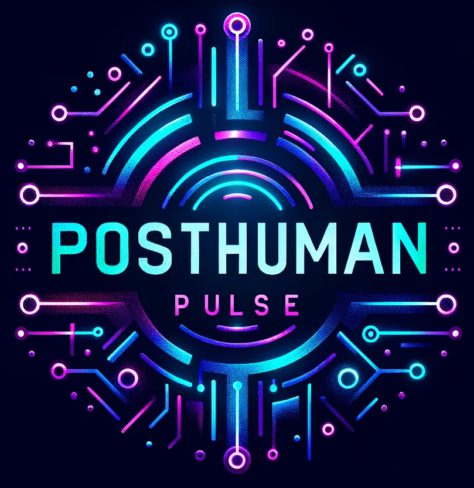Explore innovative strategies like structured reasoning and domain specialization to significantly enhance AI models’ capabilities.
In the dynamic world of artificial intelligence, achieving models capable of performing complex reasoning tasks with efficiency is a central challenge. Recent developments like LLaVA-o1 and AstroSage-Llama-3.1-8B mark significant advancements in this quest. LLaVA-o1 leverages a structured, stage-based reasoning framework, while AstroSage-Llama-3.1-8B exemplifies the benefits of domain specialization. This article delves into these models, revealing their innovative approaches and potential to revolutionize AI capabilities.
LLaVA-o1: Revolutionizing Visual Language Models
Visual Language Models (VLMs) have long grappled with the complexity of reasoning tasks. The LLaVA-o1 model represents a breakthrough, introducing a structured, stage-based reasoning framework that significantly enhances VLM performance. The model independently determines its reasoning sequence, minimizing reliance on external prompt engineering. By dividing reasoning tasks into four distinct stages, LLaVA-o1 provides a comprehensive understanding of inputs, elevating its capability to handle complex reasoning challenges.
This methodical approach addresses prior limitations in multimodal question answering and scientific diagram interpretation. Insights from a Dev.to article underscore the model’s ability to transform visual language processing, marking a significant leap forward. As VLMs evolve, LLaVA-o1’s structured framework may well become a cornerstone strategy for tackling intricate reasoning tasks. [Source: Dev.to]
AstroSage-Llama-3.1-8B: The Impact of Domain Specialization
AstroSage-Llama-3.1-8B showcases the profound impact of domain specialization in AI. Trained extensively on astronomy-related data, this model achieves remarkable proficiency, scoring 80.9% on the AstroMLab-1 benchmark, surpassing larger models in its class. This performance, akin to GPT-4o, highlights the model’s specialized training on astronomy, astrophysics, and cosmology data.
The model’s success emphasizes the potential of focused training to yield superior capabilities, suggesting that domain specialization can outshine general-purpose models in specific fields. As highlighted in an arXiv article, AstroSage-Llama-3.1-8B’s achievements underscore the effectiveness of tailored training in AI, opening doors for similar strategies in other domains. [Source: arXiv]
Comparative Analysis: Structured Reasoning vs. Domain Specialization
Exploring the strengths and limitations of structured reasoning and domain specialization reveals unique advantages inherent in each approach. LLaVA-o1’s structured framework offers a systematic method to enhance VLMs’ reasoning abilities, while AstroSage-Llama-3.1-8B demonstrates the power of domain-focused training to achieve high proficiency.
Integrating these strategies could optimize AI model performance, combining the systematic reasoning of LLaVA-o1 with the specialized knowledge of AstroSage-Llama-3.1-8B. This synergy might unlock new levels of AI capability, bridging the gap between complex reasoning and domain-specific expertise. Comparative insights from both articles suggest that such integration holds promise for future AI advancements, potentially leading to models adept at handling a broad spectrum of complex tasks.
Reshaping AI’s Landscape with Structured Specialization
The emergence of models like LLaVA-o1 and AstroSage-Llama-3.1-8B signals a shift in AI development strategies. These models illustrate how structured reasoning and domain specialization can redefine AI’s potential, prompting a reevaluation of traditional training methodologies. Their success invites exploration of similar frameworks across various industries, potentially leading to specialized AI solutions tailored for specific tasks and fields.
However, challenges such as overfitting in highly specialized models and the need for extensive data collection in niche domains must be addressed. Despite these hurdles, the potential for creating AI systems with unparalleled expertise in particular areas is a compelling prospect. As AI continues to advance, these strategies may converge, leading to even more sophisticated models capable of tackling increasingly complex tasks, paving the way for a new era in artificial intelligence.
Key Takeaways: Structured reasoning and domain specialization are pivotal in advancing AI model capabilities, as evidenced by LLaVA-o1 and AstroSage-Llama-3.1-8B. AI developers are encouraged to explore these strategies for enhanced model performance. As AI evolves, these approaches may lead to more sophisticated models capable of tackling increasingly complex tasks.
“AstroSage-Llama-3.1-8B scores 80.9% on the AstroMLab-1 benchmark, greatly outperforming all models in the 8-billion parameter class.” – arXiv
“LLaVA-o1 introduces a structured, stage-based reasoning framework to improve VLM performance.” – Dev.to
Statistics to Highlight:
- AstroSage-Llama-3.1-8B achieved 80.9% on the AstroMLab-1 benchmark. [arXiv]
- LLaVA-o1 uses a four-stage reasoning process to enhance VLM understanding. [Dev.to]

